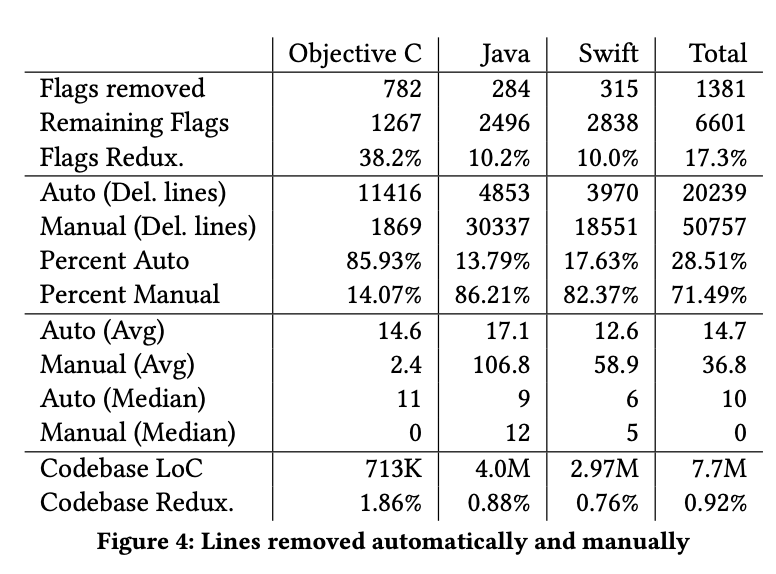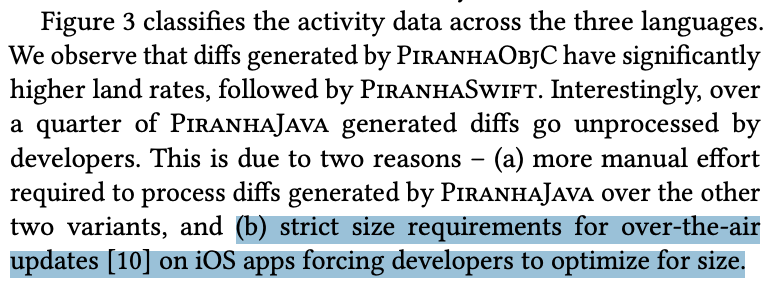Uber just open-sourced Piranha, an internal tool for detecting and cleaning up stale feature flags.
Let's talk about it a bit...
They also have a really interesting academic paper describing it, along with lots of interesting details on feature flagging @ Uber in general: manu.sridharan.net/files/ICSE20-S…
I've seen this approach at other orgs that are naturally segmented by market. Makes it easier to understand the scope of a rollout.
They also introduce the risk of accidentally flipping a stale flag in prod, with untested and scary consequences (c.f. the Knight Capital Knightmare) bugsnag.com/blog/bug-day-4…
See martinfowler.com/articles/featu… for more discussion of this idea.
What other nuggets did *you* get from the paper?
Anyone have any other interesting reports from orgs talking about their usage of feature flagging in the wild?








